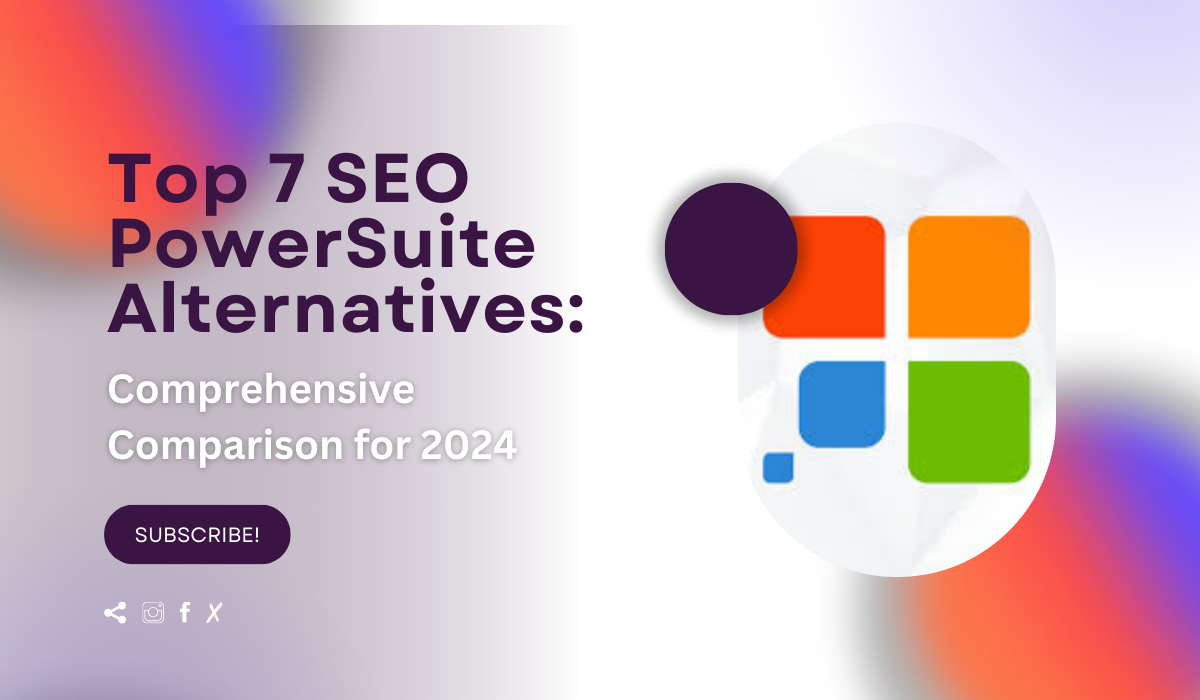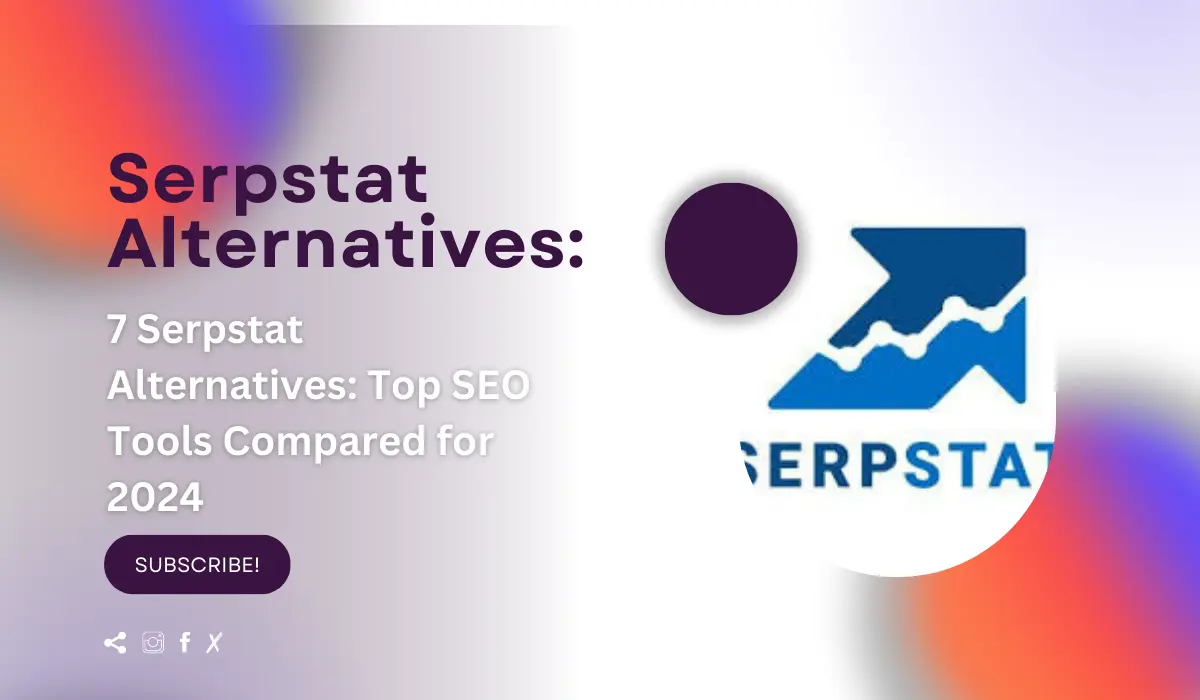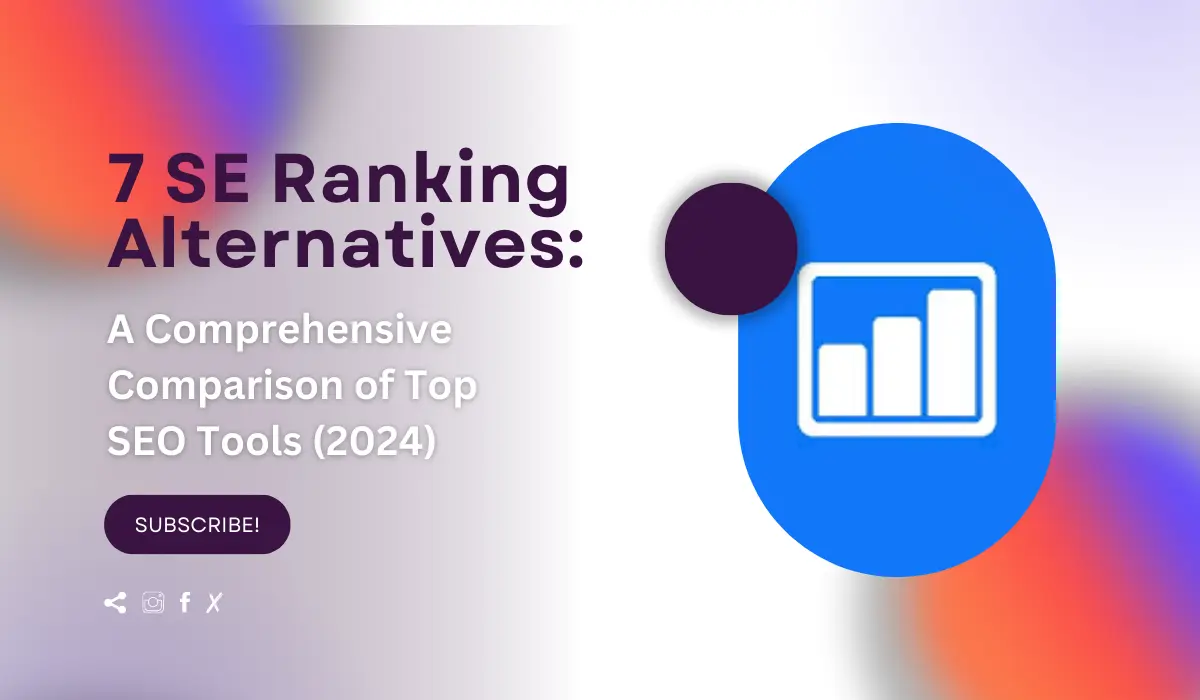Choosing the right SEO tool is crucial for businesses looking to enhance their online presence. Agency Analytics and SEMrush are two leading tools in the SEO landscape, each offering distinct features and benefits. This comprehensive guide will explore the Agency Analytics vs. SEMrush debate, delving into their key features, content analysis capabilities, competitive analysis tools, pricing, and additional features. By the end, you’ll have a clear understanding of which tool aligns best with your SEO strategy and business needs.
Agency Analytics vs. SEMrush: Overview
When comparing Agency Analytics vs. SEMrush, it’s important to grasp the core functionalities of each tool. Both platforms aim to improve SEO performance but cater to different aspects of the SEO process and target different user needs.
Agency Analytics vs. SEMrush: Key Features
Agency Analytics
Overview
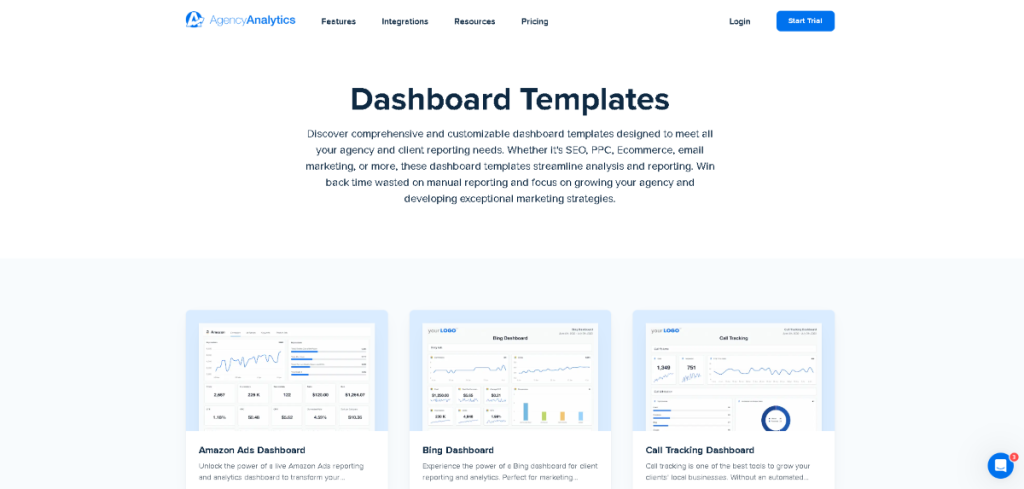
Agency Analytics is a versatile platform designed to streamline SEO reporting and manage digital marketing campaigns. It is especially valuable for agencies that need to consolidate data from various sources into a unified dashboard.
Highlights
- Customizable Dashboards: Agency Analytics allows users to create customized dashboards that aggregate data from multiple sources. This feature is crucial for agencies managing numerous client accounts and needing a centralized view of performance metrics.
- Client Reporting: The tool excels in generating automated client reports, providing comprehensive insights into SEO performance, keyword rankings, and website analytics. This capability is particularly useful for agencies that need to present regular updates to clients.
- SEO Tools Integration: Agency Analytics integrates with various SEO tools, including Google Analytics, Google Search Console, and Moz. This integration enables users to pull data from different platforms into a single interface.
Bottom Line
In the Agency Analytics vs. SEMrush comparison, Agency Analytics is ideal for agencies seeking robust reporting capabilities and a unified view of data from multiple sources. Its focus on customizable dashboards and client reporting makes it a valuable tool for digital marketing professionals managing multiple clients.
SEMrush
Overview
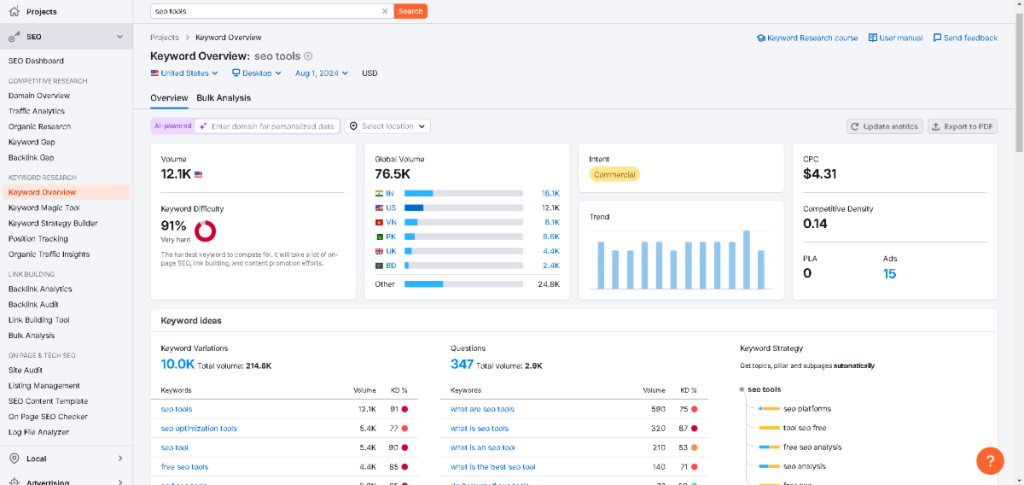
SEMrush is a comprehensive SEO tool known for its extensive suite of features covering various aspects of SEO, from keyword research to competitive analysis and technical SEO. It is widely used for its all-in-one approach to SEO and digital marketing.
Highlights
- Keyword Research: SEMrush offers in-depth keyword research tools, including search volume, keyword difficulty, and competitive density. This feature helps users identify high-value keywords and optimize their content effectively.
- Competitive Analysis: SEMrush provides robust tools for analyzing competitors’ strategies. Users can gain insights into competitors’ keyword strategies, backlink profiles, and traffic sources, allowing for strategic adjustments.
- Site Audit: SEMrush includes a detailed site audit feature that identifies technical SEO issues and provides actionable recommendations for improvement. This tool is essential for maintaining a healthy website and optimizing overall SEO performance.
Bottom Line
For those comparing Agency Analytics vs. SEMrush, SEMrush stands out for its comprehensive suite of SEO tools. Its strengths in keyword research, competitive analysis, and technical SEO make it a powerful asset for a wide range of SEO activities and digital marketing strategies.
Agency Analytics vs. SEMrush: Content Analysis
Content analysis is a crucial component of SEO optimization. Both Agency Analytics and SEMrush offer tools to evaluate content effectiveness, but their approaches and capabilities differ.
Agency Analytics vs. SEMrush: Content Insights
Agency Analytics
Overview
Agency Analytics focuses more on reporting and data integration rather than detailed content analysis. While it offers some content-related insights, its primary strength lies in aggregating and presenting data from various sources.
Highlights
- Content Performance Metrics: Agency Analytics provides performance metrics for content, such as page views and user engagement. However, its content analysis capabilities are not as advanced as those of dedicated content optimization tools.
- Integration with Content Tools: The tool integrates with content platforms and analytics tools, allowing users to track content performance alongside other SEO metrics.
Bottom Line
Agency Analytics is suitable for tracking content performance in the context of broader SEO metrics. However, for in-depth content analysis and optimization, it may not offer the same level of detail as specialized content tools.
SEMrush
Overview
SEMrush offers a comprehensive approach to content analysis, integrating insights with keyword research and competitive analysis. This approach helps users optimize their content within the context of their overall SEO strategy.
Highlights
- Content Analyzer: SEMrush’s Content Analyzer evaluates the quality and relevance of your content. It provides insights into content performance and offers recommendations based on industry standards and competitive benchmarks.
- SEO Writing Assistant: This feature offers real-time suggestions for optimizing content, including recommendations for readability and SEO best practices. It helps ensure that your content is both engaging and optimized for search engines.
- Keyword Tracking: SEMrush tracks keyword performance over time, providing insights into how your content performs and identifying areas for improvement. This feature supports ongoing content optimization and strategy adjustments.
Bottom Line
SEMrush’s content analysis capabilities are robust, integrating content insights with keyword research and competitive analysis. Its Content Analyzer and SEO Writing Assistant are valuable tools for optimizing and tracking content performance.
Agency Analytics vs. SEMrush: Competitive Analysis
Competitive analysis is essential for understanding your market position relative to competitors. Both Agency Analytics and SEMrush offer tools for competitor analysis, but their methods and focus differ.
Agency Analytics vs. SEMrush: Competitor Insights
Agency Analytics
Overview
Agency Analytics provides basic competitive analysis features through its integration with various SEO tools. While it offers some insights into competitor performance, it is primarily focused on reporting and data integration.
Highlights
- Competitor Data Integration: The tool integrates with SEO platforms that provide competitor data, allowing users to view competitor metrics alongside their own performance.
- Basic Competitor Insights: Agency Analytics offers basic insights into competitors’ performance, but its capabilities are not as comprehensive as those of dedicated competitive analysis tools.
Bottom Line
Agency Analytics is useful for accessing competitor data in the context of broader reporting but lacks the in-depth competitive analysis features found in specialized tools.
SEMrush
Overview
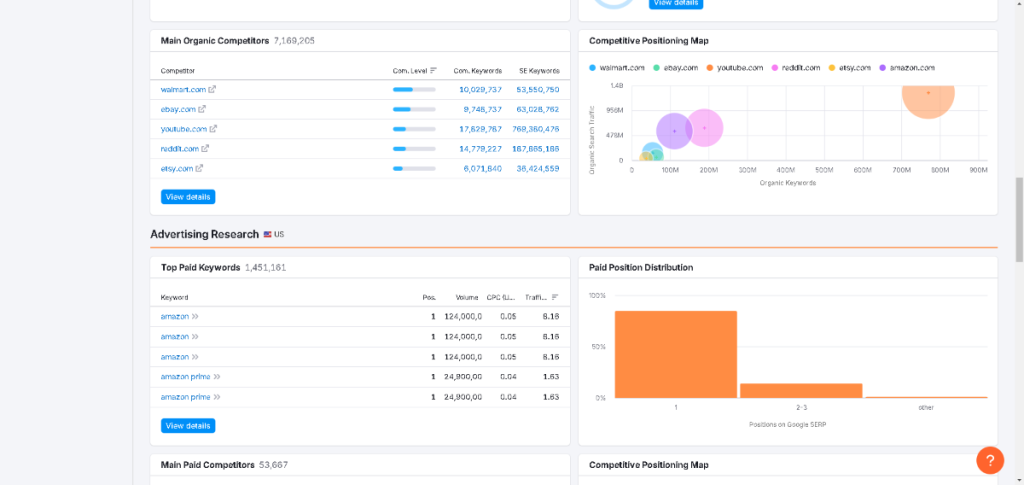
SEMrush offers a comprehensive suite of competitive analysis tools, providing detailed insights into competitors’ strategies and performance.
Highlights
- Competitor Research: SEMrush’s Competitor Research tools offer in-depth analysis of competitors’ keyword strategies, backlink profiles, and traffic sources. This allows users to benchmark their performance and adjust their strategies accordingly.
- Market Explorer: The Market Explorer feature provides a broader view of market trends and competitor performance. It helps users understand their position in the industry and identify growth opportunities.
Bottom Line
SEMrush excels in competitive analysis with its extensive tools for researching and understanding competitors’ strategies. Its broad range of features makes it a powerful tool for gaining a competitive edge.
Agency Analytics vs. SEMrush: Pricing
Pricing is a critical consideration when choosing an SEO tool. Both Agency Analytics and SEMrush offer various pricing plans based on features and usage levels.
Agency Analytics
Overview
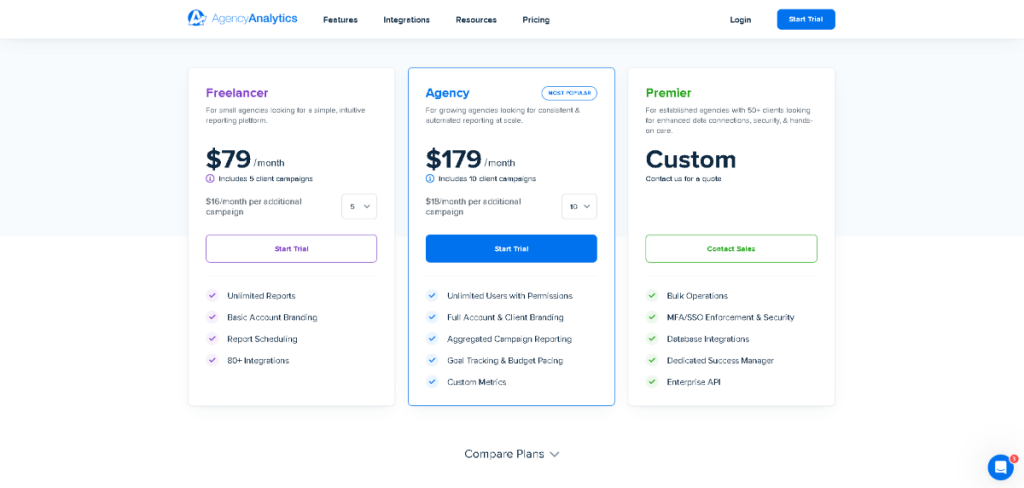
Agency Analytics offers several pricing tiers tailored to different needs and budgets. Its pricing is designed to accommodate individual users, small teams, and larger organizations.
Highlights
- Basic Plan: Provides essential features for reporting and dashboard creation. Suitable for small businesses and individual users.
- Pro Plan: Includes additional features and higher limits for more extensive projects. Ideal for growing teams and agencies.
- Enterprise Plan: Offers advanced features and customization options for larger teams and enterprises. Pricing is tailored to meet the needs of large organizations.
Bottom Line
Agency Analytics’ pricing is flexible, catering to various user needs with different plans designed for individual users and larger teams.
SEMrush
Overview
SEMrush provides several pricing tiers based on the features and level of access required. Its plans are designed to support a wide range of users, from individuals to large enterprises.
Highlights
- Pro Plan: Includes essential features for small businesses and freelancers, offering a robust set of tools for managing SEO activities.
- Guru Plan: Offers additional features and higher usage limits for growing businesses, providing more comprehensive tools and data access.
- Business Plan: Provides advanced tools and support for larger organizations, including features designed for extensive SEO and digital marketing needs.
Bottom Line
SEMrush’s pricing is designed to accommodate different user needs and budgets. The variety of plans ensures that users can select the option that best fits their requirements, whether for individual use or enterprise-level support.
Agency Analytics vs. SEMrush: Additional Features
Both Agency Analytics and SEMrush offer additional features that enhance their core capabilities. These unique features can influence your decision based on specific needs.
Agency Analytics vs. SEMrush: Unique Features
Agency Analytics
Overview
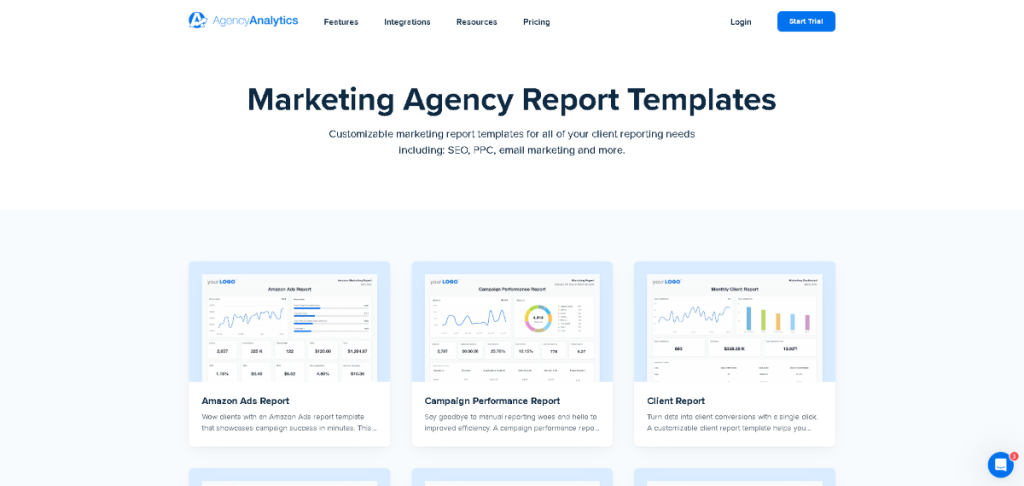
Agency Analytics includes several unique features that enhance reporting and data integration. These tools provide additional functionality for managing digital marketing campaigns.
Highlights
- Multi-Channel Reporting: Allows users to integrate data from various marketing channels, including SEO, PPC, and social media, into a single report. This feature is valuable for comprehensive campaign management.
- Client Access: Provides clients with access to their own dashboards and reports, facilitating transparency and communication.
Bottom Line
Agency Analytics’ additional features focus on reporting and data integration, offering valuable functionality for managing and presenting digital marketing campaigns. For a full review click here.
SEMrush
Overview
SEMrush provides advanced features that integrate with broader SEO and digital marketing strategies. Its tools extend beyond traditional SEO practices, offering capabilities for various aspects of online marketing.
Highlights
- Ad Management: Includes tools for managing and optimizing paid search campaigns, integrating SEO with paid advertising strategies.
- Social Media Tools: Offers features for tracking and analyzing social media performance, providing insights into social media metrics and management.
Bottom Line
SEMrush’s additional features cover a broad range of digital marketing activities, including ad management and social media analysis. These tools enhance its overall value as an all-in-one marketing platform. For a full review click here.
Conclusion
When comparing Agency Analytics vs. SEMrush, both tools offer distinct advantages based on your needs. Agency Analytics excels in reporting and data integration, making it a strong choice for agencies managing multiple clients. In contrast, SEMrush provides a comprehensive suite of SEO tools, including keyword research, competitive analysis, and technical SEO features, making it suitable for a wide range of SEO and digital marketing activities.
Ultimately, the right choice depends on your specific requirements and priorities. Consider the key features, content analysis capabilities, competitive analysis tools, pricing, and additional features of each tool to make an informed decision that aligns with your business goals.

